2014 Podcasts
The podcast is presented by Gareth Mitchell, a lecturer on Imperial's MSc Science Communication course. He’s also a longstanding BBC presenter and reporter. Gareth is joined each month by our roving reporters in the Communications Division.
If you have feedback that you'd like to share or ideas for future editions, we'd love to hear from you; please contact Gareth Mitchell.
You can also find the podcasts on most major platforms, including YouTube, Apple Podcasts, Stitcher and Spotify.
Check out other podcasts produced across the College in our podcast directory.
2014 Podcast archive
Venus, music and rogue bacteria
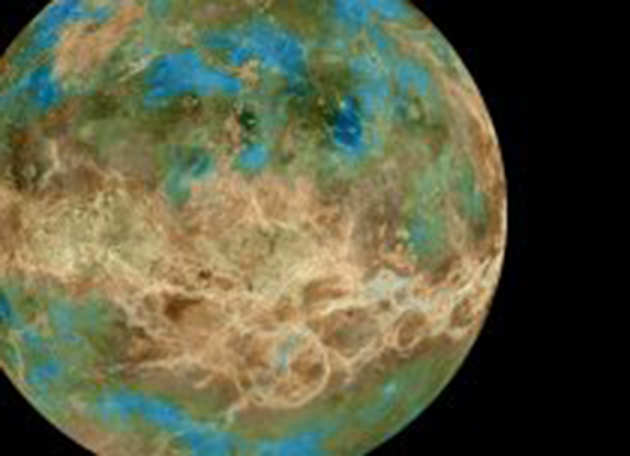 Imperial researchers put forward plans for a new mission to Earth’s less celebrated neighbour.
Imperial researchers put forward plans for a new mission to Earth’s less celebrated neighbour.
The College’s Director of Music recounts his favourite memories of musical life on campus.
And we hear how research on the roles of bacteria in human health can be led astray by contaminated samples.
Download the complete podcast (mp3)
Or listen to individual chapters
News: Mexican waves in the brain - Colin Smith describes a new study from the Department of Bioengineering that explains how oscillating waves spread through groups of neurons. (Full story)
Contamination sends experiments awry – A new study by Dr Michael Cox and colleagues at the National Heart and Lung Institute highlights how contaminated samples can lead to the wrong bacteria being implicated in biomedical studies. (Full story)
Earth’s unloved neighbour – Dr Richard Ghail (Civil and Environmental Engineering) and Dr Philippa Mason (Earth Science and Engineering) make the case for further explanation of Venus and outline their plans for a new mission.
Music at Imperial - Imperial’s Director of Music, Richard Dickins, talks about the concerts on offer and opportunities for students to get involved.
(3 December)
WW1 medicine, digital currencies and flying robots
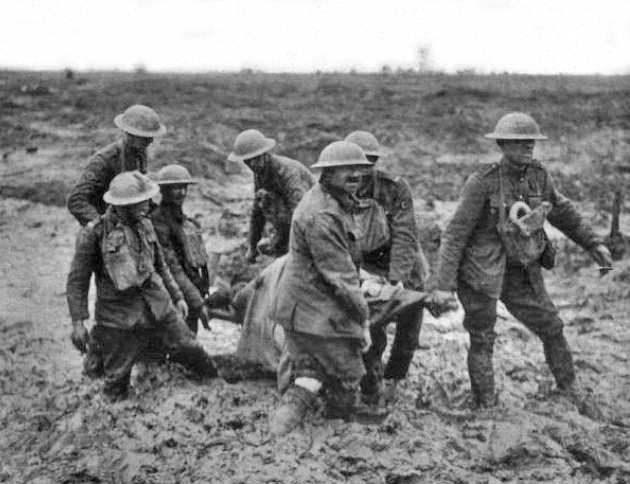 Imperial researchers explain how army doctors dealt with amputees’ pain in the First World War, and how it’s managed now.
Imperial researchers explain how army doctors dealt with amputees’ pain in the First World War, and how it’s managed now.
Dr Llewellyn Thomas introduces a new initiative that offers students funding for projects on improving the security of digital currencies such as bitcoin.
Plus, we hear about a new lab that plans to put drones to use as a force for good.
OR LISTEN TO INDIVIDUAL CHAPTERS
News: Salamanders in peril – A skin-eating fungal disease brought from Asia by the pet trade poses a threat to European amphibians.
Painful memories – Imperial researchers revisit the archives of the Lancet to examine how army doctors managed amputation pain in the First World War.
Cash for bitcoins – An opportunity for students to win money for projects on cryptocurrencies.
Drones for humanity – Dr Mirko Kovac discusses a new laboratory being planned at Imperial for studying flying and swimming robots.
(12 November)
Universal sounds, green growth and invasive species
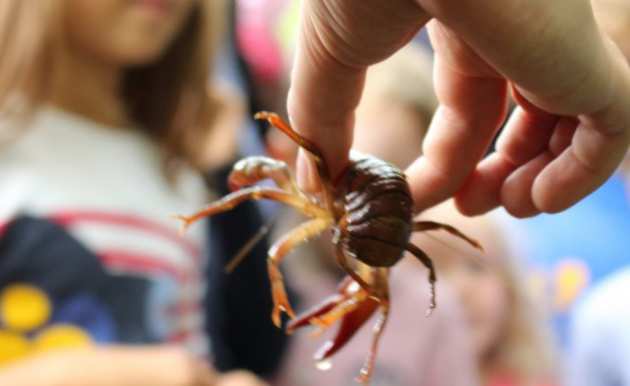 Using only the most common thousand words in the English language, Dr Roberto Trotta explains 'all you need to know about all-there-is'.
Using only the most common thousand words in the English language, Dr Roberto Trotta explains 'all you need to know about all-there-is'.
Do green policies mean healthy balance sheets? The Business School’s Ralph Martin assesses the impact of environmental policies on economic growth.
And we go crayfish fishing at Imperial’s Silwood Park campus to learn about invasive species.
OR LISTEN TO INDIVIDUAL CHAPTERS
News: Light activated drugs and science teaching. Sam Wong discusses light activated drugs that could soon be treating diabetes and Caroline Davis chats about new science films that will be used by teachers to help them inspire primary school children.
Explaining the universe using only the most common 1000 words: Why are we here? A very big question for a limited number of words. Dr Roberto Trotta talks to Gail Wilson about writing the long and complicated story of our universe using only the most common thousand words in the English language.
Assessing the impact of climate policy on economic growth: Maxine Myers asks Ralf Martin about his new research examining how green technologies, such as electric cars and renewable power plants, impact innovation and economic growth.
Crayfish fishing at Silwood Park campus: Gail Wilson meets up with PhD student Sam Lloyd to chat about an invasive species of crayfish found in the pond at Imperial’s Silwood Park campus.
(22 October)
Measuring 'Marsquakes', Moroccan meteorites and Invictus Games
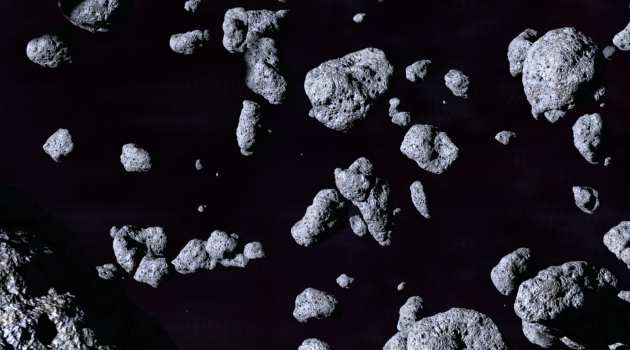 What is inside Mars? Professor Tom Pike discusses 2016 NASA mission to Mars and how he plans to measure 'Marsquakes'.
What is inside Mars? Professor Tom Pike discusses 2016 NASA mission to Mars and how he plans to measure 'Marsquakes'.
And staying with space related matters, Gail Wilson visits the 2014 Imperial SpaceLab to learn about the science and business of exploring space.
We also hear from gold medal winning athlete and bioengineer Dave Henson about his recent success at the inaugural Invictus Games.
OR LISTEN TO INDIVIDUAL CHAPTERS
- News: Future estimates on cases of the deadly Ebola disease and an introduction to the Brevan Howard Centre for Financial Analysis, a new research hub set up to help understand and prevent financial crises.
- Measuring quakes on Mars: Colin Smith speaks to Professor Tom Pike about an upcoming 2016 mission to Mars and his involvement in building seismometers to detect ‘Marsquakes’ and understand the seismic activity of the red planet.
- Update from Imperial SpaceLab 2014: Imperial SpaceLab 2014 was the College’s 2nd annual space science co nference. Gail Wilson chats to researchers about moon craters, meteorites from Morocco, and how spac e satellites could help improve UK rail networks.
- GB captain Dave Henson talks about 2014 Invictus Games: Medal-winning student Dave Henson who competed in the 2014 Invictus Games talks to Colin Smith about going for gold and how losing both his legs while serving as a soldier in Afghanistan in 2011 has inspired his research developing the world’s first implantable knee joint.
(1 October)
Behind the scenes at CERN and Aristotle on science
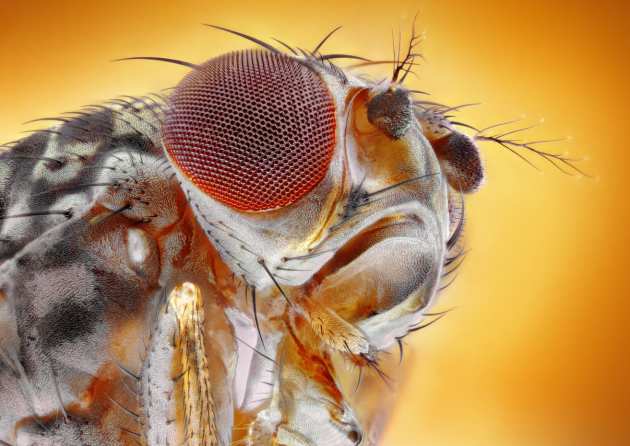 Did Aristotle invent science? Professor Armand Leroi discusses his new book and explains why the famous philosopher should be a celebrated scientist.
Did Aristotle invent science? Professor Armand Leroi discusses his new book and explains why the famous philosopher should be a celebrated scientist.
We also hear what life is like in the lab, a very big lab in fact, as we go behind the scenes with four physicists working on experiments at CERN’s Large Hadron Collider.
And, Dr Andrew Horsfield from the Department of Materials explains new research that uses fruit flies to explore the relationship between anaesthetics and quantum mechanics.
Download the complete podcast
OR LISTEN TO INDIVIDUAL CHAPTERS
- News: Exploring treatments for sleep apnoea and the cost of conservation in the Brazilian Atlantic Ra inforest.
- How Aristotle invented science: Gareth Mitchell speaks to Professor of Evolutionary Developmental Biology, Armand Leroi, about his new book that explores Aristotle’s first steps into structuring the natural world and how his work affects science today.
- Behind the scenes with physicists at CERN: Gail Wilson chats to four scientists working on particle physics experiments at CERN’s Large Hadron Collider and looks forward to potential discoveries on the horizon as they gear up to turn the LHC back on.
- Quantum mechanics and the effect of anaesthetics on fruit flies: Colin Smith talks to Andrew Horsfield from the Department of Materials about the relationship between electron spin and anaesthetics to find out why certain fruit flies are seemingly resistant to anaesthetic drugs.
(3 September)
Sound of silence, molecular malaria map and mobile medics
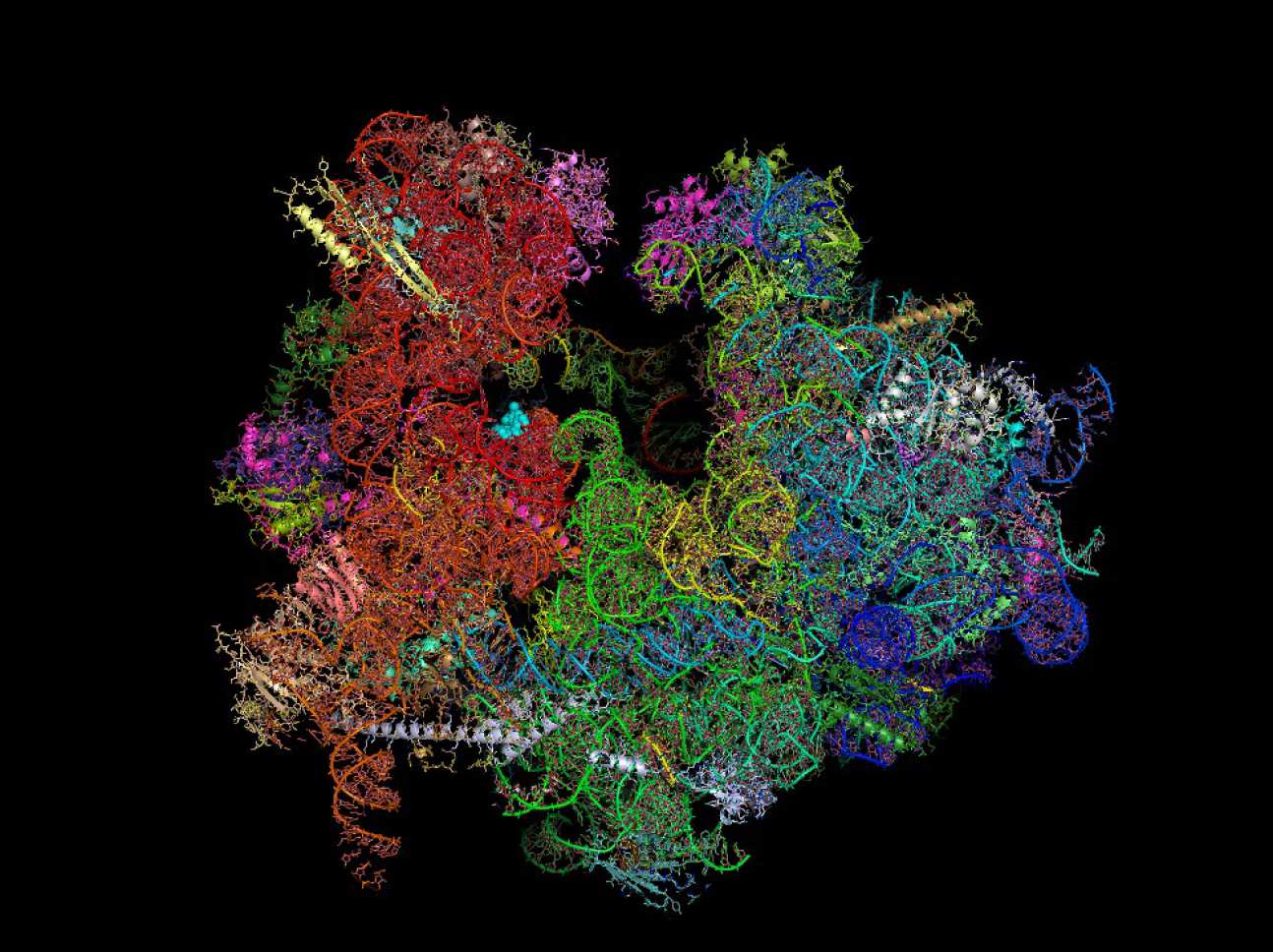 Listening to silence: Imperial alumnus Ed Prosser talks about his audio art in the latest edition of the Podcast.
Listening to silence: Imperial alumnus Ed Prosser talks about his audio art in the latest edition of the Podcast.
Dr Jake Baum discusses how a molecular map of the malaria parasite could help combat drug resistance.
And we hear from Business School students who have developed mobile technology that could bring more medical care to people in Uganda.
OR LISTEN TO INDIVIDUAL CHAPTERS
- News: Stroke therapy and wiping out dinosaurs – Sam Wong discusses a new trial of stem cell treatment for stroke patients and Colin Smith chats about new insights into how bad timing helped bring about the extinction of the dinosaurs.
- Molecular map of the malaria parasite: Gail Wilson talks to Dr Jake Baum about investigating the ribosome of the malaria parasite as a target for developing new anti-malarial drugs that could combat resistance.
- Sound art and the sound of silence: Gareth Mitchell speaks to Science Communications alumnus Ed Prosser about how he made a piece of sound all about the lack of it.
- Mobile medical care in Uganda: Maxine Myers speaks to a prize-winning team from the Business School about their new simple SMS and voice mobile technology that provides doctor consultations to people over the phone in Uganda.
(13 August)
Visit the heart and lung repair shop and estimate childhood TB
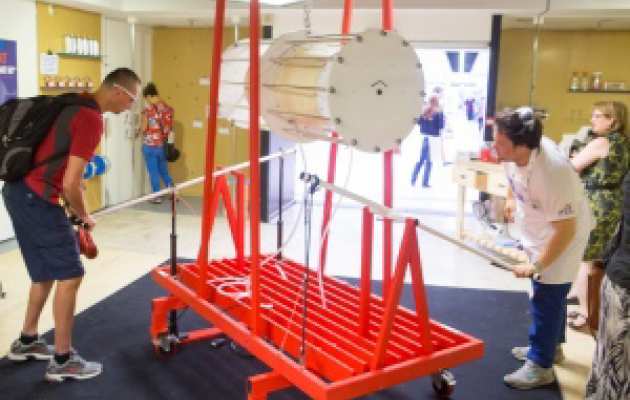 We visit a repair shop with a difference to find out about the research involved in heart and lung repair.
We visit a repair shop with a difference to find out about the research involved in heart and lung repair.
Dr James Seddon discusses a new study that suggests there are tens of millions of children with undiagnosed tuberculosis, and outlines interventions to prevent children from getting the disease.
Download the complete podcast
OR LISTEN TO INDIVIDUAL CHAPTERS
- News: safer IVF treatment and keeping cool in the city in an increasingly hot climate.
- Heart and lung repair shop: Gail Wilson visits a pop-up shop in Hammersmith and chats to scientists from the National Heart and Lung Institute to find out about research involved in heart and lung repair.
- Estimating childhood tuberculosis: Franca Davenport speaks to Dr James Seddon about a new study that shows that there is a large gap between the number of recorded tuberculosis cases and the true incidence.
(23 July)
The heart of the sun and tackling obesity with soft drink tax
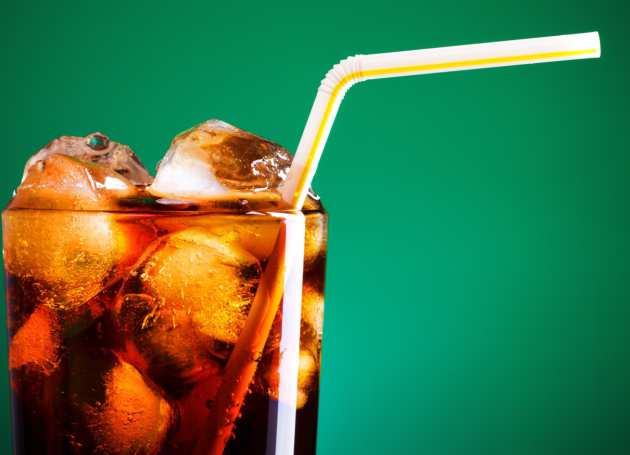 Business School economist Dr Katharina Hauck explains how levying a tax on sweetened soft drinks could help tackle obesity.
Business School economist Dr Katharina Hauck explains how levying a tax on sweetened soft drinks could help tackle obesity.
Dr Arthur Turrell showcases a Royal Society Summer Science exhibition where visitors will find out how and why Imperial scientists are trying to recreate the centre of the sun.
And we hear from Imperial alumnus and self-proclaimed ‘science daredevil’ Greg Foot about science communication in front of and behind the camera.
Download the complete podcast
OR LISTEN TO INDIVIDUAL CHAPTERS
- News: Showcasing the Imperial Show 2014 and Professor Chris Toumazou’s European Inventor Award.
- Looking inside the heart of the sun: Dr Arthur Turrell explains his Royal Society Summer Science exhibition, which gives a flavour of experiments that aim to recreate the centre of the sun.
- Communicating science: Gareth Mitchells speaks to Imperial alumnus and Wellcome Trust Engagement Fellow Greg Foot about public engagement and the importance of science communication.
- Soft drink tax and tackling obesity: Maxine Myers speaks to Business Sc hool economi st Dr Katharina Hauck and asks whether levying a tax on sweetened soft drinks could help tackle obesity.
(2 July)
Visiting the Large Hadron Collider and why bike helmets matter
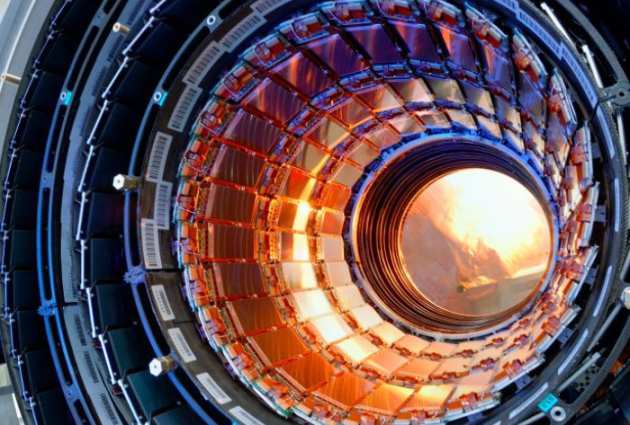 What will happen when CERN's Large Hadron Collider is turned back on? Professor Jim Virdee previews some of the potential discoveries on the horizon.
What will happen when CERN's Large Hadron Collider is turned back on? Professor Jim Virdee previews some of the potential discoveries on the horizon.
Dr Mazdak Ghajari smashes the head of a crash test dummy to tell us how wearing a helmet protects your head from serious brain injuries.
And Dr Guillermo Rein explains why the 2001 World Trade Centre fires spread so rapidly, and how better building design can stop fire from travelling.
OR LISTEN TO INDIVIDUAL CHAPTERS
- News: COX2 pain relief inhibitors and Sir John Pendry’s million dollar Kavli Prize
- A visit to CERN and the Large Hadron Collider: Gail Wilson takes a trip to the LHC and speaks to Professor Jim Virdee about what is happening at CERN while the collider is shut down, and asks what news we might expect to hear once it is turned back on.
- Bike helmets and brain injuries: At the 2014 Imperial Festival, podcast presenter and motorbike lover Gareth Mitchell speaks to Dr Mazdak Ghajari from department of aeronautics about how a helmet can protect you from brain injuries after a serious collision, even if you are riding at a low speed.
- Stopping fire from spreading: Dr Guillermo Rein tells Colin Smith about his research exploring why the fires in the World Trade Centre caused by September 11th terrorist attacks sp read so rapidly, and how different building design could stop fires from travelling through buildings.
(11 June)
Extracting copper, fibre diets and swimming bacteria
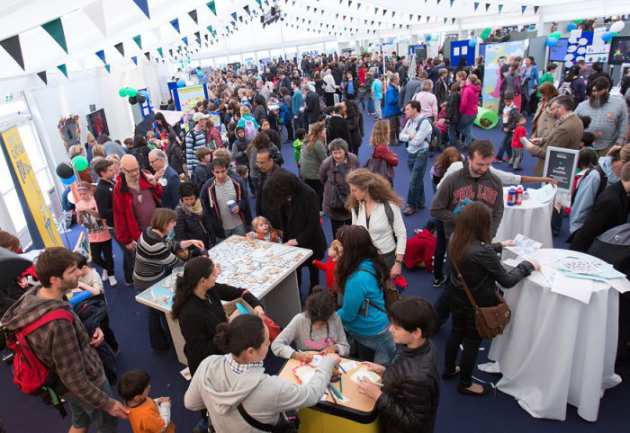 Recorded from the 2014 Imperial Festival, the latest podcast explores how to extract copper from mud using nothing but bubbles.
Recorded from the 2014 Imperial Festival, the latest podcast explores how to extract copper from mud using nothing but bubbles.
We also hear from Professor Gary Frost about dietary fibre and why it makes us feel less hungry, and look down the microscope to find out how bacteria swim.
OR LISTEN TO INDIVIDUAL CHAPTERS
- News: flying 3D printing robots and the Athena SWAN awards - Colin Smith describes a world first robot that can 3D print and Gail Wilson talks about Imperial’s recent success in the latest Athena SWAN awards.
- Science of bubbles - Gareth Mitchell speaks to Gareth Morris from the Department of Earth Science and Engineering at the 2014 Imperial Festival to find out how he uses bubbles to extract copper from mud.
- Tackling obesity with fibre - Franca Davenport speaks to Professor Gary Frost from the Department of medicine to find out why eating more fibre might help to control problems with overeating.
- Finding out how bacteria swim – Gareth Mitchell looks down the microsope at the 2014 Imperial Festival to find what enables bacteria to swim.
(21 May)
UK knowledge economy performance and climate change report
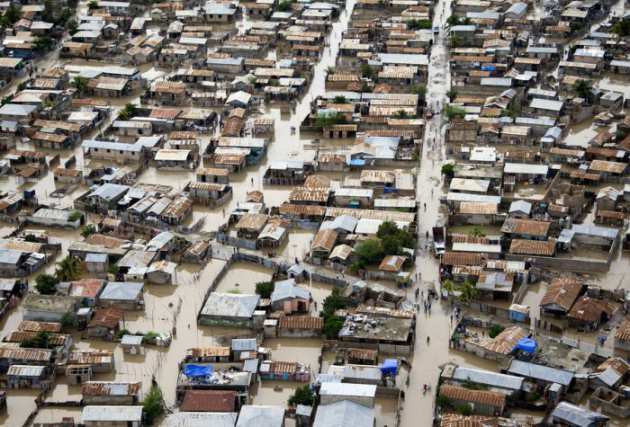 In the latest edition, we discuss the latest IPPC report on climate change impacts with an Imperial climate change policy expert.
In the latest edition, we discuss the latest IPPC report on climate change impacts with an Imperial climate change policy expert.
A researcher from the Business School explains a new report which explains the sometimes hidden assets that are actually making more of a difference to the economy than we might have thought.
OR LISTEN TO INDIVIDUAL CHAPTERS
- News roundup – cosmic barometer and more Imperial Centres for Doctoral Training – Colin Smith explains how scientists have developed a way of reading the universe's 'cosmic barometer' to learn more about ancient violent events in space. Andrew Czyzewski tells us more about new Imperial Centres for Doctorial Training announced by the UK Chancellor.
- Investing in the UK’s knowledge economy – Maxine Myers talks to Professor Jonathan Haskel from Imperial College Business School about new research demonstrating that when business investment in intangible assets is measured, it shows that the UK’s economy is performing better than previously reported.
- IPPC report on climate change impacts – Gail Wilson sits down with Dr Simon Buckle to hear his reaction to the latest findings of a global climate change report released by the United Nations Intergovernmental Panel on Climate Change (IPCC).
- Covering the Ig Nobel awards for improbable research - Aliyah Kovner, an Imperial news and events intern, chats about the Ig Nobel awards show tour, which explores unusual, whacky and offbeat research that may have been overlooked.
(9 April)
Greener groceries, women on top and going back to school
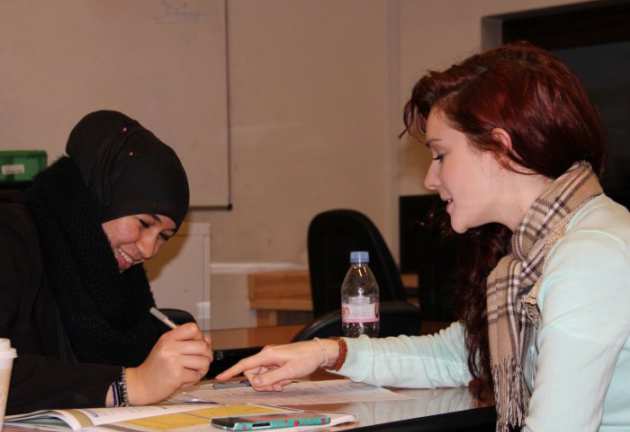 An engineer explains how he's helping Sainsbury's to become greener and we discuss how business schools are helping to boost women into the boardroom.
An engineer explains how he's helping Sainsbury's to become greener and we discuss how business schools are helping to boost women into the boardroom.
We also hear from two College students who have gone back to school to teach maths and science to pupils from low income backgrounds.
OR LISTEN TO INDIVIDUAL CHAPTERS
- News roundup – ADHD and obesity, and hacking technology with the Business School - we follow 7000 Finnish children with ADHD to explore whether there are links to teenage obesity, and hear about the College ‘hack-a-thon’ where students developed an app to help dyslexic people read with Google Glasses.
- How supermarkets can save energy – Colin Smith chats to Dr Salvadro Acha about how the Grantham Institute for Climate Change has teamed up with Sainsbury’s to investigate ways the supermarket can save energy.
- How can business schools help women reach senior positions? – Maxine Myers interviews Associate Dean of the Business School Diane Morgan and asks her what role business schools should play in boosting women into business boardrooms.
- Imperial student volunteers go back to school – We hear from two Imperial students who have given up their time to go back to the classroom and teach maths and science to pupils from low-income backgrounds.
(19 March)
Global online MBA and latest wind farm research
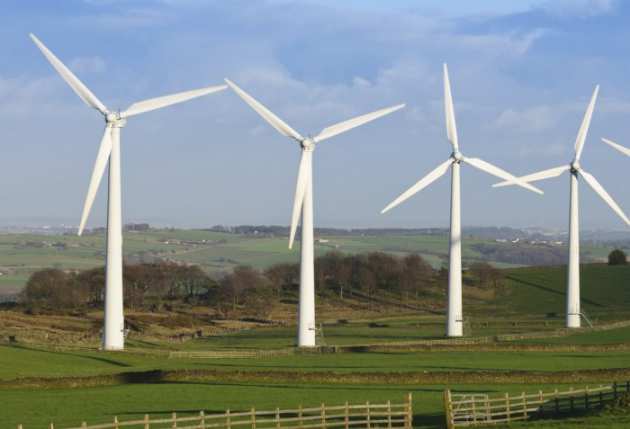 Dean of the Business School chats about new online MBA, we try out mobile payment scheme YoYo, and discuss research exploring viability of wind farms.
Dean of the Business School chats about new online MBA, we try out mobile payment scheme YoYo, and discuss research exploring viability of wind farms.
OR LISTEN TO INDIVIDUAL CHAPTERS
- News: robot research and exploring the links between passive smoking and asthma - we hear about a new robotic centre funded by Dyson to look at how we free robots from the factory floor and discuss how cigarette smoke impacts the effectiveness of asthma treatment in children.
- Online MBA – Maxine Myers speaks to the Dean of Imperial College Business School about Imperial’s new flexible, part-time, MBA programme to be offered online.
- YoYo App – Deborah Evanson and Gareth Mitchell try out the new mobile payment app YoYo, co-founded by Imperial Innovations.
- Blown Away – We hear from Dr Iain Staffell and Professor Richard Green about new research rejecting claims that ageing wind farms are a bad investment, but in fact are much more economically viable than previously thought.
(26 February)


